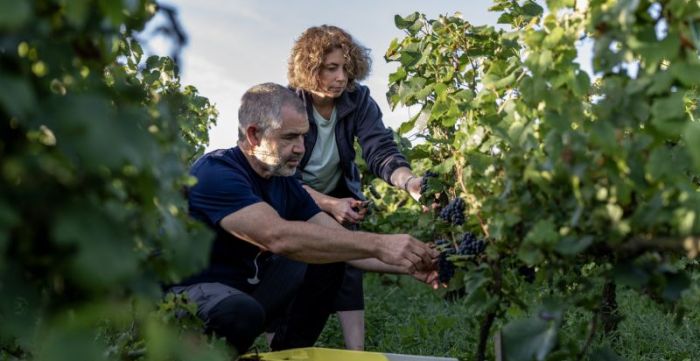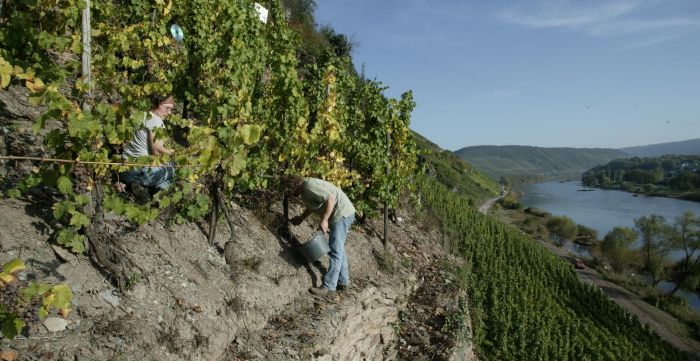Please wait ...

2025 Harvest Reports!

2025 Harvest Reports!
<p>As we ease into the new year, it's that time to look to the future by reading about the past: <a href="https://louisdressner.com/harvest-reports?&ArticleSearch[year]=2025&ArticleSearch[country_id]=&ArticleSearch[producer_id]=">over 30 harvest reports from the 2025 vintage are up for your perusing pleasure!</a></p>
<p>2025 will be remembered as three things: extremely precocious, great overall quality and quantities that were all over the place: great for some, ok or terrible for others. </p>
<p>We thank all the producers who contributed their stories and photos and look forward to sharing the fruits of their labor in 2026 and beyond.</p>
<p> </p>
Article
Tips For Navigating the Website.

How to navigate the website.
<p><u><strong>Desktop vs Mobile:</strong></u></p>
<p>We know people use their phones a lot, so we've worked hard on ensuring the site functions well on mobile devices. Having said that, we recommend using a laptop/desktop to optimally peruse our content. </p>
<p><u><strong>Glossary:</strong></u></p>
<p>At its core, this has always been a website written for wine professionals *attempting* to glean information on the wines we import - and hopefully see a picture of the vigneron's dog. Since the jargon can be so technical, we've added an <glossary term="glossary" title="1427">interactive glossary</glossary> to the text for those unfamiliar with the baffllingly complex world of wine terminology. Even if you're a seasoned pro, you might learn a thing or two. And if you'd rather read the content without the glossary, simply head to the main menu bar and turn it off. </p>
<p> "<u><strong>Our Wines" Section: </strong></u></p>
<p>In the "Our Wines" section, we've offered a variety of filter categories for you to explore and discover all the cuvées we import. These filters can be combined together to narrow down results. If you hit a wall with no results, simply erase one of the filters or clear all filters. </p>
<p><u><strong>Technical Information For Each Wine:</strong></u></p>
<p>78% of the wines we import have extremely detailed technical information when clicked on, dare I say the most technical anywhere on the internet. Half of these are probably woefully outdated.</p>
<p><u><strong>Search:</strong></u></p>
<p>If you know what producer or wine you are searching for, the search should quickly autofill what you need. Go ahead, give it a whirl. You can also hit enter after searching and skup the autofill.</p>
<p><strong><u>Hyperlinks/PDFs:</u></strong></p>
<p>Every single piece of content on the website has its own hyperlink. This means you can easily share a specific producer page, article, wine or filter combination with anyone. You can also save or print out PDF's bt clicking the PDF icon.</p>
<p><u><strong>Copy/Paste:</strong></u></p>
<p>Due to the website's design, if you need to copy/paste anything, the glossary needs to be turned off for the text to paste correctly. We recommend using the PDF feature instead. </p>
<p>Also, if you are going to straight up use our writing verbatim, PLEASE credit us when doing so. Seems obvious but we see it happen all the time. </p>
<p><u><strong>A Shit-Ton of Written Content:</strong></u></p>
<p>The articles themselves can often be very long, and for this reason we developed a Propriety Pop Up System™ where you can easily scroll through various articles/wines and "pop out" to efficiently look at the rest of the content.</p>
<p>We've tried our best to pack as many dog pictures as possible in there, but the digital ink has been spilled: the cumulation of decades' worth of writings from Joe, Denyse, Kevin and Jules is here for you to read. A huge part of the work with this new website was to find better ways to condense and extract essential information you need without getting lost in all that BORING text. </p>
<p>We still think you should check it out. Don't worry, there are plenty of pictures. And you might even find the writing interesting. Or funny. Or both. </p>
Article

